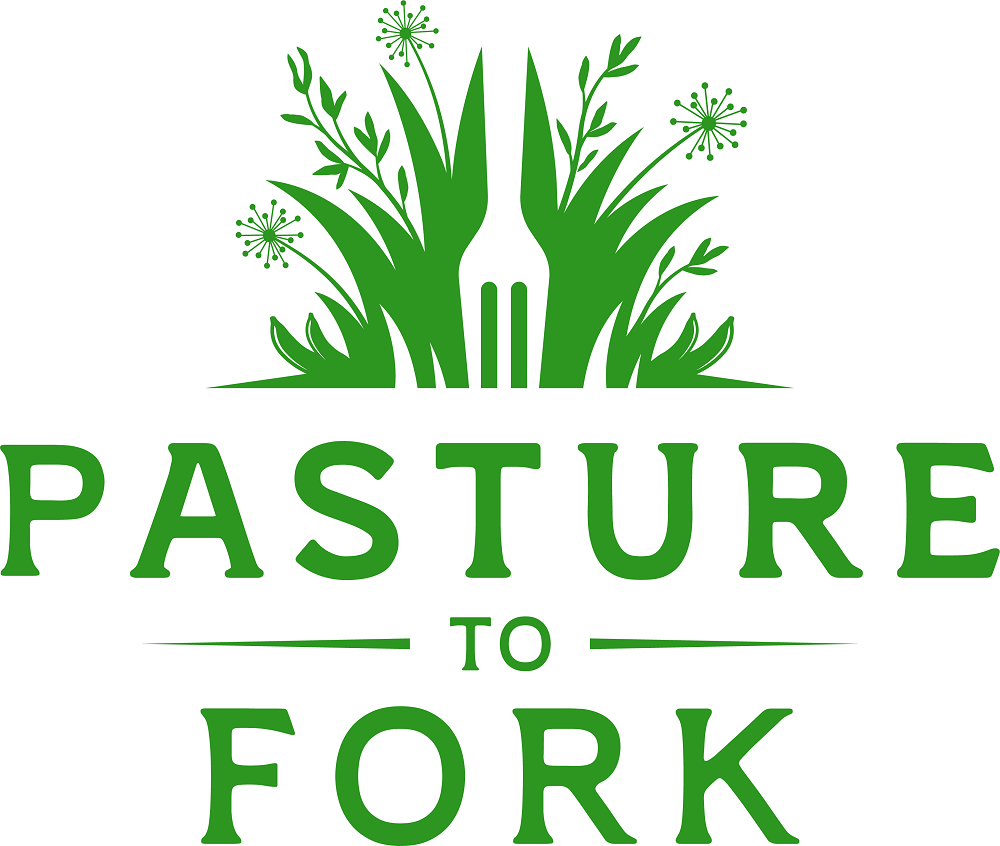100% Grassfed
In our experience, we believe the reputation of grass-fed beef being tough or gamey is a result of poor production practices and/or the wrong beef genetics. We know that the combination of good grass-based beef genetics, well-managed grasses kept in optimal growth via rotational grazing, low-stress cattle handling techniques, and harvesting at the optimum stage will result in succulent, tender beef that makes for a gourmet dining experience. The same is true for dairy products from 100% grassfed cows.
That said, properly raising 100% grassfed beef or dairy does not mean we merely turn the cattle out to pasture and allow them to eat grass. Not only does that type of lackadaisical continuous grazing destroy grasslands due to selective grazing of palatable plants while allowing undesirable plants to go to seed and reproduce, but neither will the resulting beef or dairy be of optimal quality. Well raised grassfed beef and dairy is almost always raised in a managed grazing system where the cattle are moved to fresh grass frequently. This both allows them access to grasses that have been allowed to grow to optimal quality and palatability for a time, but it also removes them from the soiled manured area where they were, which drastically increases animal health by removing the likelihood of re-ingesting parasite larvae.
And it's not just a boon to cattle health but is good for the land as well.
When grasses are grazed (pruning is good for plants) but then allowed a rest and regrowth period rather than being pruned again the following day, they flourish, spread out, and fill in any voids in the plant cover (covering the soil more fully), which then allows the soil to stay cooler and more productive, which in turn encourages beneficial soil life like earthworms, who in turn help to increase soil mineralization, which in turn helps the grasses be more nutritious, which helps the animals to be healthier and your food to be more flavorful and nutrient-dense. I know that's an improperly long sentence but see how it creates a cycle that continues to benefit the next phase of the cycle.
We believe locally produced beef raised on well-managed grassland is the viable solution to the rising concerns for human health, ecological damage, and animal welfare that increasingly plague status quo beef and dairy production. Concerns that, by the way, stem from the industrialization of cattle production via animal confinement in feedlots and the practice of feeding concentrated grains for maximum short-term production (and monetary gain, only not for the eater).
What’s more, today’s status quo cattle farming is centered not only around concentrated feeds, but also genetically modified crops—corn and soybeans. There are a growing number of people who are very concerned about the use of genetically modified annual crops for food animals. Annual crop production requires a tremendous amount of water and fossil fuel—and is vastly damaging to the ecosystem. In the US, fertile topsoil is being swept and washed away 10 times faster than it is being replenished.
I should mention that certified organic beef and dairy does not necessarily mean it's grass-fed, and grass-fed does not equal organic. The vast majority of “certified organic” beef on supermarket shelves comes from feedlots where grain is the number one ration component. At Pasture to Fork, we’re adamant about 100% grass-fed dairy and grass-fed grass-finished beef. No grain ever. And we're not certified organic, but neither do we use any chemicals on our farm.
Cattle simply were not created to be the grain consumers modern agriculture forces them to be. Grass-fed beef contains 2-5 times more omega-3s and 2-3 times more Conjugated Linoleic Acid (a polyunsaturated fat that’s high in antioxidants and protects against heart disease, diabetes, and cancer). Why is this? Because it’s produced in an environment natural to cattle. In addition, the extraordinarily higher antioxidant, vitamin, and mineral content of grass-fed beef compared to grain-fed beef is nothing to scoff at. Interestingly though, mainstream organic rarely differentiates itself from a nutritional viewpoint, and rarely mentions the fact that it's not completely grassfed.
The beauty of raising beef on pasture is that cattle are inherently healthy in their natural habitat, which eliminates the need of genetically modified concentrated feeds, antibiotics, or synthetic hormones. In a well-managed pastoral system, the grass and cattle complement one another, and causing the evils of environmental damage, cruelty to animals, and unhealthy food to literally disappear. The lack of guilt in grass-fed beef and dairy provides not only foods you can feel good about but offers a delightfully memorable eating experience as well.
